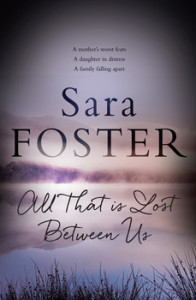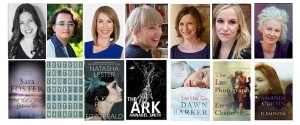Dawn Barker's Blog, page 3
July 24, 2024
The Journey to Publication: Navigating the Challenges and Triumphs of the Writing Process
Discover effective strategies for overcoming writer’s block, crafting compelling storylines, and navigating the publishing industry to boost your writing career.
Overcoming Writer’s BlockWhen it comes to Overcoming Writer’s Block, it is essential to recognize that this is a common challenge even for the most experienced writers. The key to surpassing this hurdle often lies in understanding its root cause, which can range from a lack of inspiration to a pressing sense of perfectionism. One effective method for tackling this issue is setting a routine and environment that inspires creativity and focus. Writers might, for instance, find that changing their scenery, whether by moving to a new location to write or organizing the current space, can dramatically shift their mindset and reignite their creative energies.
Crafting Compelling Storylines is another crucial facet of the writer’s journey. To build a narrative that resonates with readers, a deeper dive into character development and plot structuring is essential. Long, winding sentences that weave through the emotional and psychological depths of characters can help to create a compelling and immersive world. Moreover, understanding the dynamics of conflict and resolution within the narrative arc can further serve to engage the audience and keep them hooked from the beginning to the end of the story.
Finding success in Navigating the Publishing Industry requires not only literary talent but also business acumen. Aspiring authors should educate themselves on the various publishing options available to them, from traditional publishing houses to self-publishing platforms, and understand the benefits and drawbacks of each. Developing a robust marketing plan and building a strong online presence can also significantly enhance visibility and reader engagement. Ultimately, persistence and resilience are key attributes that can help an author navigate this competitive industry and achieve publishing success.
Crafting Compelling StorylinesThe art of Crafting Compelling Storylines is a pivotal facet of any successful writing endeavor, often determining the emotional and intellectual engagement of the audience. To weave a narrative that resonates deeply with readers, it is imperative to blend originality with relatability, ensuring that the plot flows with a seamless rhythm while maintaining enough intrigue to keep the pages turning. Crafting such a storyline requires more than just a fertile imagination; it demands an intricate understanding of human emotions, a robust command of narrative structures, and the ability to foresee how different narrative elements will interplay throughout the story.
For aspiring writers, the main challenge lies in balancing the complexity and simplicity in a storyline. A narrative that is too straightforward might fail to captivate, while one that intertwines too many subplots may overwhelm the reader. It is essential, therefore, to develop a clear central conflict that acts as the backbone of your story, around which all other elements organically develop. This conflict must not only be engaging and significant but also deliver ample scope for character development and thematic exploration, thereby enhancing the overall depth of the narrative.
Navigating through the journey of a writer involves constant learning and adapting. Techniques such as outlining the plot, character sketching, and drafting multiple versions can serve as invaluable tools in honing one’s storytelling ability. Additionally, feedback from early readers can provide critical insights into the strengths and weaknesses of the storyline, offering opportunities for refinement. By integrating these strategies, writers can significantly improve their proficiency in craftning compelling storylines that not only entertain but also endure in the minds of their audience.
Navigating the Publishing IndustryThe road through the publishing industry can be intricate and daunting for many aspiring authors, but understanding its inner workings can transform these hurdles into stepping stones toward success. As one delves into this competitive realm, it becomes paramount to grasp not only the dynamics of book deals and agent relations but also the evolving trends and preferences of the market, which dictate the demand for certain genres and writing styles. Keeping abredition with these trends helps a writer position their manuscript in a more favorable light, increasing its chances of being picked up by publishers.
Another vital step in navigating the publishing industry is building a robust professional network. Connecting with fellow writers, attending workshops, and participating in literary events can provide invaluable insights and opportunities. These interactions not only foster learning and encouragement through shared experiences but also open doors to collaborations and potential endorsements from established authors. Such alliances can be instrumental in propelling a writer’s work into the spotlight, thus securing a better foothold in the publishing landscape.
Furthermore, dealing with rejection is a part and parcel of the journey that must be managed with resilience and adaptability. Each refusal to publish should be viewed not as a setback, but as a learning opportunity, providing critical feedback that can refine one’s manuscript for better prospects. It is essential for writers to persequently hone their craft and adapt their strategies based on actionable feedback received from editors and critics, thereby enhancing their manuscript’s appeal and aligning more closely with industry expectations.
The World of Literary Agents: How to Find Representation for Your Book
Explore the roles of literary agents, learn effective research techniques and prepare your submission materials for literary success.
Understanding Literary Agent RoleThe role of a literary agent is pivotal in the journey of getting a book from manuscript to publication, acting as the bridge between an author and potential publishers. By leveraging their deep understanding of the book market, literary agents support authors not only in selling their works but also in negotiating terms and enhancing the book’s potential success through strategic career management and development.
Literary agents offer invaluable assistance in refining a book’s proposal and pitch, ensuring that it accurately targets the right editors at suitable publishing houses. This tailored approach significantly boosts the likelihood of an author’s work being acquired, thanks to the agent’s expertise in understanding what specific publishers are currently looking for in terms of new titles and genres.
Furthermore, the expertise of literary agents extends to the legal aspects of publishing, where they scrutinize contracts for fairness and advocate for the author’s best interests, thereby safeguarding their rights and ensuring that they receive suitable royalties and other benefits. Representation by a skilled literary agent is often considered essential in navigating the competitive world of book publishing, as they provide crucial guidance, industry insights, and access to valuable resources and connections.
Researching Potential Literary AgentsFinding the right literary agent who can adeptly represent your book to publishers is a critical step in the publishing process, and researching potential literary agents should be approached with meticulous care and strategic planning. First and foremost, an aspiring author must delve into the genres that respective agents have previously taken on, as aligning your manuscript with an agent’s interests and strengths greatly enhances the likelihood of a successful collaboration. Websites like Publishers Marketplace and QueryTracker offer a treasure trove of information on agents, while also providing insights into the types of books they are looking for.
Moreover, understanding an agent’s role in the career trajectories of their current and past authors can reveal a great deal about their effectiveness and commitment. A thorough review of client lists, recent deals, and the longevity of their relationships with authors can provide invaluable context to their working style and success rate. It’s important to note that earning the trust of a well-connected literary agent can significantly amplify your chances of getting your foot in the door at major publishing houses.
Finally, it is advisable for authors to cross-reference any potential literary agent with industry resources like the Association of Authors’ Representatives (AAR), which maintains a stringent code of ethics, to ensure they are dealing with someone who has a robust professional standing. Participating in writer’s workshops, literary conferences, and networking events where agents are present can also provide direct opportunities to ask questions and potentially establish relationships that might lead to representation. When preparing to approach literary agents, remember it’s about finding a partnership that will foster and champion your work effectively throughout the publishing process.
Preparing Submission MaterialsWhen aspiring authors reach the stage of Preparing Submission Materials for literary agents, the focus must shift towards crafting documents that highlight the uniqueness and potential market appeal of their book. Integrating a comprehensive yet engaging synopsis, a polished manuscript or sample chapters, and a personalized query letter is crucial. Each component should align seamlessly to convey not just the storyline, but also the distinct voice and the depth of character development, ensuring that they stand out in the competitive world of publishing.
A critical part of the materials is the creation of a query letter, which serves as the initial introduction to a literary agent. This letter should encapsulate the essence of the work, provide a glimpse into the author’s background, and demonstrate an understanding of the agent’s existing literary roster and interests. Authors must put a significant amount of effort into tailoring this document, often making it the first piece that an agent reads, ultimately setting the tone for their perception of you and your work.
Building a Strong Author Brand: Establishing Your Identity in the Writing Industry
Discover how to craft your unique writing voice, implement effective personal strategies, and build authentic connections with readers in our latest blog post.
Crafting Your Unique Writing VoiceUncovering and nurturing your unique writing voice is pivotal for any author aiming to make a lasting impression in the literary world. Developing a distinct voice involves a deep exploration of your personal experiences, emotions, and perspectives, eventually enabling the creation of content that resonates on a personal level with your audience. It is through this unique expression that writers can differentiate themselves in a crowded marketplace, offering fresh insights and fostering a distinct presence among readers.
Central to the process of refining your writing voice is the continuous practice of writing combined with the meticulous analysis of your work. Aspiring writers should immerate themselves in a variety of genres and styles to broaden their narrative techniques and vocabulary. This diverse exposure can inspire innovation in one’s writing style and contribute to a more confident and authentic voice. Furthermore, feedback from peers and mentors is invaluable, as it provides critical insights that can help in fine-tuning one’s stylistic expressions and ensuring that the voice remains engaging and true to the writer’s core identity.
Finally, maintaining consistency in your writing voice across all your works can significantly amplify your personal brand in the writing industry. Consistency helps in building a strong, recognizable brand that readers can easily identify and connect with, which in turn, strengthens reader loyalty and expands your audience base. Embrace the journey of discovering and honing your unique writing voice; it is not merely about crafting words but about leaving a signature imprint that echoes your individuality across the literary landscape.
Effective Personal Branding StrategiesDeveloping effective personal branding strategies is a fundamental step for any professional aiming to stand out in a crowded market. By consistently showcasing your unique skills and values, you can create a distinctive brand that resonates deeply with your target audience. By leveraging the power of social media platforms, personal websites, and even traditional media, individuals can articulate a cohesive and compelling narrative that highlights their professional journey and expertise.
It is crucial to understand that personal branding is not solely about self-promotion but rather about creating a trustworthy and authentic image that others can relate to and rely upon. This means engaging with your audience in meaningful ways, such as through regular content updates that provide insights, tips, or thought-provoking discussions relevant to your field. By positioning oneself as a thought leader and a reliable source of information, you can forge stronger connections with your followers and peers, paving the way for enhanced opportunities within your industry.
To further solidify your personal brand, it is important to maintain consistency across all platforms. This includes the use of consistent visual elements, such as logos, color schemes, and typography, alongside a stable voice and message. Maintaining such consistency ensures that your brand is easily recognizable and memorable, ultimately helping to build a greater sense of loyalty among your audience. Furthermore, feedback and interaction from your audience should be warmly embraced, as it provides valuable insights into how your brand is perceived and potential areas for further development.
Building Authentic Connections with ReadersIn the realm of writing, the power to forge authentic connections with readers is not just beneficial; it is essential for sustained success. Understanding and reaching your audience on a personal level can transform the reading experience from a mere pastime into a meaningful interaction. This connection not only enhances the reader’s engagement but also bolsters the likelihood of building a loyal following.
To truly connect with your audience, focusing on transparency and vulnerability in your writing is pivotal. By sharing personal experiences, struggles, and triumphs, an author allows readers to see a reflection of themselves within the stories or content provided. This reflective imagery can deeply resonate with the audience, elevating their emotional investment and making your work memorable.
Additionally, regularly interacting with readers through various platforms—be it social media, blog comments, or live readings—serves to strengthen these bonds. This engagement shows that you value their opinions and perspectives, which in turn fosters a sense of community and belonging among your readership. These authentic interactions contribute significantly to establishing a robust, enduring connection that transcends the pages of your work.
Tips for Writing an Irresistible Query Letter: Catching the Attention of Literary Agents
Learn to craft a compelling blog post opening, showcase your unique qualities, and highlight relevant writing experience to captivate your audience.
Crafting a Compelling OpeningWhen endeavoring to create a compelling opening in your query letter, the first few sentences must not only hook the reader but also succinctly demonstrate the essence of your manuscript and its marketability. Crafting an opening that can immediately pique the interest of literary agents is pivotal; it sets the tone and invites the reader into a deeper engagement with the material presented. Showcasing your ability to engage an audience from the first line is critical in demonstrating your writing skills and the potential impact of your book.
To ensure the effectiveness of your opening, consider starting with an intriguing question or a bold statement that challenges conventional perceptions. This approach can create a strong emotional pull, prompting the literary agent to consider the unique perspectives or thrilling narratives you might offer. It is essential to distill the primary themes or conflicts of your work into a single opening line that captures the overall spirit of your manuscript while still maintaining clarity and precision.
Lastly, it is beneficial to intertwine some relevant writing experience into your opening if it enhances your credibility or alignment with the subject matter of the book. This not only enriches the opening but also strategically positions you as a suitable author with pertinent expertise or background. Remember, the opening of your query letter serves as a proving ground for your writing style, your market understanding, and the feasibility of your project in the competitive literary landsca
Showcasing Unique and Marketable QualitiesWhen endeavoring to compose a query letter that stands out to literary agents, it is paramount to articulate your unique and marketable qualities compellingly. These attributes are not just what distinguish you as a writer, but they serve as a beacon of intrigue that may capture the interest of those capable of elevating your literary career. In delineating these qualities within your query letter, it’s not adequate to simply list them; you must illustrate them through the lens of how they enhance your ability to tell a story that resonates and sell.
Demonstrating how your specific qualities align with the niche or genre you are writing in can profoundly impact the perception of a literary agent. For instance, if you have a background in history and you’re writing a historical novel, highlight how your deep understanding of historical contexts enriches your narratives, thereby making them not only engaging but also authentic and credible. This leverages your personal expertise as a tangible asset, positioning your work as a beneficial acquisition for potential publishers.
Furthermore, integrating any previous recognitions or achievements that underscore your dedication and potential to succeed in the literary field could significantly elevate your query letter. Whether these are writing awards, previous publications, or favorable reviews, they provide concrete evidence of your capability to reach and influence an audience, hence, making your query not just a mere introduction, but a powerful testament to your distinctiveness as a writer.
Highlighting Relevant Writing ExperienceIn the crafting of an influential query letter, the ability to effectively highlight relevant writing experience can significantly elevate your proposal, convincing literary agents that you possess not only the passion but also the prerequisite skills to deliver a manuscript that warrants their attention and resources. Emphasizing your writing experience provides a concrete foundation, demonstrating your acquaintance with the writing world and an understanding of what successful publishing entails.
When detailing these experiences, it is critical to underscore those aspects that align closely with the genre or theme of the manuscript you are proposing. For instance, if you are pitching a science fiction novel, bringing forward your previous publications or contributions to renowned science fiction magazines or anthologies can act as a testament to your ability to weave complex narratives suitable for this genre. This strategic alignment helps agents quickly perceive the depth and relevance of your experience, fostering immediate confidence in your potential as a writer.
Moreover, it is not just the publishing history that counts but also relevant workshops, seminars, or courses that you have attended which have honed your skills and expanded your understanding of effective writing and publishing processes. Articulating the impact of these educational experiences in shaping your writing craft can further persuade agents that you are a committed and continuously evolving writer, deeply engaged in the literary community and proactively enhancing your abilities to succeed in a competitive market.
Exploring the Role of Critique Partners: How to Form Beneficial Writing Relationships
Explore the importance of critique partners, how to foster productive relationships, and enhance writing skills with effective feedback.
Understanding the Role of Critique PartnersIn the intricate journey of writing, the role of critique partners emerges as paramount, fundamentally shaping the developmental arc of both the narrative and its author. A critique partner acts not merely as an editor, but as a collaboratorial confidant who provides essential feedback, challenging the writer to refine and deepen their work. This proactive engagement fosters a unique dynamic, where both participants are mutually enriched through the process of constructive criticism and mindful engagement with the text.
The efficacy of such relationships hinges significantly on the ability to establish and maintain a foundation of trust and respect. It is critical that both parties are committed to honesty, possessing a shared goal of elevating the quality of the written piece while safeguarding the creative integrity of the original vision. The exchange, ideally, transcends the basic correction of grammatical errors, venturing into the realms of plot structure, character development, and thematic depth, thereby ensuring that the narrative resonates more profoundly with its intended audience.
Furthermore, the evolution of a writer through such partnerships can often be profound, with the feedback mechanisms serving as catalysts for enhanced literary skills and increased confidence. Engaging regularly with a critique partner can dramatically sharpen one’s editorial eye, not only for the work at hand but also for one’s own future projects. Thus, the benefits of such a relationship are twofold, promoting growth and excellence in writing while fostering an environment of shared learning and continuous improvement.
Establishing Effective Writing RelationshipsIn the context of nurturing a writer’s development, the importance of establishing effective writing relationships cannot be overstated. Such relationships, especially with critique partners and fellow writers, provide a foundation not only for growth but also for the necessary support and encouragement that can often ignite a writer’s creativity and productivity. When individuals engage deeply with peers who understand the intricacies of their work and the challenges they face, they create a resource-rich environment that fosters both skill enhancement and innovative thinking.
The process of forming these transformative relationships should focus on mutual respect and a shared mission to improve one’s craft. This requires open, honest communication and a readiness to both give and receive feedback that is constructive—aimed not at undermining confidence but at strengthening the effectiveness of the writer’s voice and narrative techniques. A truly robust writing relationship thrives on transparency and the reciprocal nature of learning; it is this very dynamic that helps prevent the isolation that so often accompanies the writing process.
Ultimately, committing to these relationships means entering into an agreement of sorts—an agreement to confront uncomfortable truths in one’s writing, to challenge each other, and to celebrate successes together. The core objective is to ensure that every party involved is progressing, not just on individual projects but also in their overall ability to communicate through the written word, thus improbably writing skills through feedback gathered during these crucial interactions.
Improving Writing Skills Through FeedbackThe process of honing one’s writing skills is greatly enhanced by the incorporation of feedback from diverse sources. The journey to becoming a better writer is intertwined with the understanding and acceptance of critiques that shed light on both the strengths and weaknesses inherent in one’s work. Indeed, embracing feedback
June 11, 2024
Hello world!
Welcome to WordPress. This is your first post. Edit or delete it, then start writing!
May 22, 2018
More Than Us released in the UK
It’s been a long time between posts, mainly because in the time between Let Her Go being released and now, I’ve been working hard to finish my third novel, More Than Us, while working almost full time and trying to manage my family. Somehow, I managed, and I am thrilled to say that on 21st May 2018, More Than Us was published by Canelo and is available now from all e-book retailers!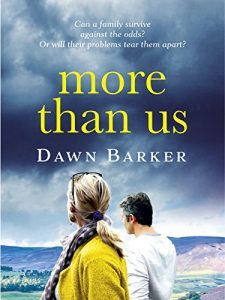
Meanwhile, my lovely agents are working hard in the background for other territories and I hope to be able to share news of releases in other locations soon!
May 22, 2017
Let Her Go e-book published today in UK
At the end of last week, my UK publisher, Canelo, revealed this beautiful new cover for Let Her Go. I’ve loved all of my covers, and it’s always nerve wracking to wait and see what a new edition will look like, but I think Canelo nailed this one!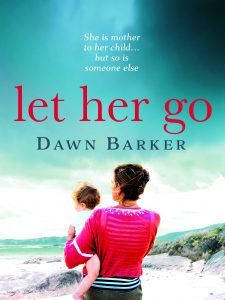
As of today, Let Her Go is available to buy as an ebook for those of you outside of Australia and New Zealand (and Poland & Turkey, where it was published last year). As I’m from the UK, having been born in Scotland, where I lived until 2001, it’s really special to see my book available to all my old friends and family there. You can buy it here and it’s only GBP1.99.
I’m off to have a glass of champagne!
May 10, 2017
Let Her Go news…
It has been a very long time between blog posts…
After publishing both Fractured and Let Her Go in close succession, and working very hard on writing and promoting them for a couple of years, I took a step back from writing. There were lots of reasons why, but as my toddlers and babies were turning into preschoolers, I also went back to working more as a psychiatrist. Last year, I opened my own practice, and I started a Masters degree. I missed writing, but I needed to get back to my professional career, and perhaps I needed a break from writing to find my passion for it again.
While I have been ‘absent’, I did finish a draft of novel three. Both Let her Go and Fractured were published in Poland and Turkey, and I still popped up occasionally as a writer in various places. I also got back to reading without analysing the structure of the book, enjoying the story rather than seeing it as part of my job, and with that, my enthusiasm and desire to write has come back.
 It’s been spurred along even more by the tireless work of my agent in Europe, Sharon Galant of Zeitgeist Media Group, who has now managed to secure a contract with Canelo, a UK based publisher, and I’m thrilled to say that Let Her Go will be available very soon as an ebook in my home country, the UK, as well as all other world English language territories (excluding Australia and New Zealand where it has always been available). You can read the press release here and I look forward to sharing the cover with you very soon!
It’s been spurred along even more by the tireless work of my agent in Europe, Sharon Galant of Zeitgeist Media Group, who has now managed to secure a contract with Canelo, a UK based publisher, and I’m thrilled to say that Let Her Go will be available very soon as an ebook in my home country, the UK, as well as all other world English language territories (excluding Australia and New Zealand where it has always been available). You can read the press release here and I look forward to sharing the cover with you very soon!
Meanwhile I’m working away on Book 3 (which will have a better title soon!) for 2018!
April 28, 2016
Writers Ask Writers returns, and celebrating two book releases!
It’s been a while since we last posted in our Writers Ask Writers series, but we’re celebrating publications by two of our writing group: Sara Foster’s All That Is Lost Between Us and Natasha Lester’s A Kiss From Mr Fitzgerald.
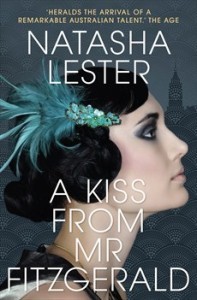
Not only are both of these books great reads, but they also both focus on young women negotiating the transition from childhood to adulthood, so we thought it would be a good time to ask our group about the books that inspired us as teenagers. You can read about the books that inspired Sara and Natasha below, as well as the other members of our group: Amanda Curtin, Annabel Smith, Sara Foster and Yvette Walker.
I remember lots of book that had an impression on me as a teenager, but my memory of the content of those books isn’t great! But the best books are those that leave you with a feeling, of awe or shock or inspiration. By my early teens I’d read pretty much everything in the ‘teenager’ section in my local library. I still recall seeing the spine of Judy Bloom’s Are you there God? It’s me Margaret, taking it home, and devouring it. I remember feeling shocked, and thinking that somehow I shouldn’t be reading all that talk of bras and boys and crushes. Soon, my grandma was checking books out for me from the adult section on her library card, and I remember the exhilaration of reading The Shining by Stephen King. I went on to read every book he’d written. It gave me nightmares, yes, but I was so drawn into the pages of that story that I only came up gasping for air when it was over. Soon after, Donna Tartt’s The Secret History made me long to go to University (but not to partake in the behaviour that goes on in that book!)
But the book from my teenage years that has stayed with me the most, and in a strange way, inspired me not only to be a writer, but to work in child and adolescent mental health, is Iain Banks’ The Wasp Factory.
Iain Banks is one of my favourite authors. He was Scottish, which gave him extra brownie points. He wrote both mainstream/literary fiction as Iain Banks and science fiction as Iain M Banks. I’ve read all of his books, even the sci-fi .The Crow Road is another favourite of mine, but The Wasp Factory was his first published novel, and the first one of his that I read.
The main character is an adolescent boy called Frank Cauldhames (the Scots reading this will be able to translate that surname!) who is trying to come to terms with being a teenager after his castration by the family dog as a child. He’s an unpleasant character: he’s violent and sadistic, but we readers are allowed access to his internal world that allows us to empathise – a little – with him. His father is awful too – at times cruel and unresponsive to his child’s distress. But mostly I remember the twist at the end of this novel and the dread and horror as the I understood, along with Frank, what his real story is.
I still have my original copy of The Wasp Factory on my bookshelf: the simple black and white cover takes me back instantly to the couple of days I spent reading it and the realization of the power of words and stories. I think I was about 17 when I read it. I had just started my medical degree at University, and it made me more determined to work in mental health. It showed me that external behaviour is not the whole story: children have a rich and secretive internal world and in many ways, are a product of their environment and family. It’s an uncomfortable read, but one that challenged me to look at the world differently and go behind the closed door of a family in distress and dealing with things that I could never imagine. It’s the genre that I love to read, and to write, and it’s how I spend my working life as a psychiatrist.
Iain Banks died in June 2013 at the age of only 59. He had announced only a few months earlier that he had been diagnosed with gall bladder cancer and was unlikely to live for a year. He arranged for his final novel, The Quarry, to be published sooner than planned, but he passed away before he saw it hit the shelves. I listened to the audiobook of The Quarry with tears running down my face as the father in this novel came to terms with the fact he was dying of cancer, only weeks after Iain Banks himself he had died. Apparently he didn’t know until the book was almost finished that he was ill. He’s a writer whose career I followed and loved from his first novel, The Wasp Factory, to his last.
Now you can read about the books and people that inspired Amanda Curtin, Annabel Smith, Sara Foster, Natasha Lester, Yvette Walker and Emma Chapman – including stories of old bosses and Richard Branson kitesurfing, Sylvia Plath, historical fiction, Graham Greene, Douglas Adams, the Brontes and Virginia Woolf

